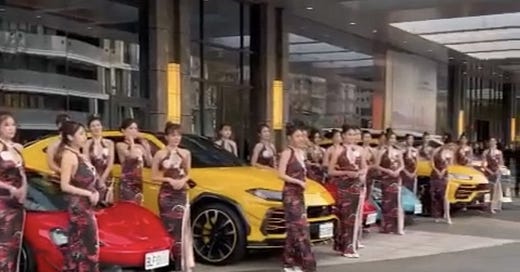The Bamboo United Gang (竹聯幫) held a Lunar New Year celebration dinner with 85 tables for around 1,000 people at the Marriott Hotel in Taipei in March, which has led to calls for the police to take action against such gatherings. Guests at the banquet were greeted by 170 young girls dressed in cheong sam dresses as well as a parade of luxury sports cars.
© 2025 Martin Purbrick
Substack is the home for great culture


